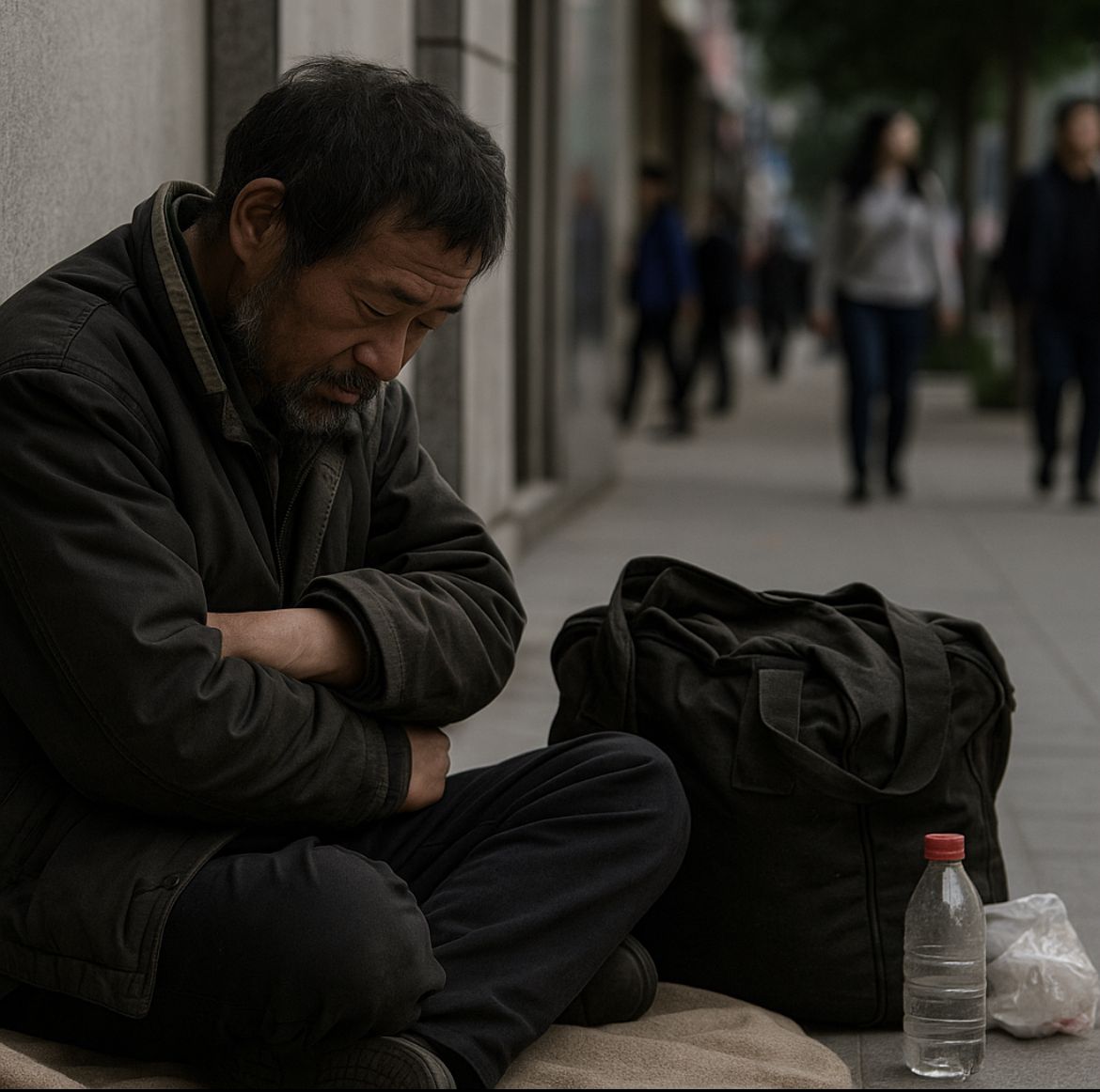China’s Hidden Crisis: The Surge in Homelessness Amid Urban Prosperity

China’s Hidden Crisis: The Surge in Homelessness Amid Urban Prosperity
China, widely hailed for its spectacular economic rise and rapid urban development, is now grappling with a growing humanitarian crisis—homelessness. In the bustling metropolises of Beijing, Shanghai, Guangzhou, Shenzhen, Chongqing, and beyond, thousands of individuals—both young and old—are being pushed to the margins of society, forced to sleep under bridges, on sidewalks, in parks, or inside shop galleries. The sharpest rise is visible among the youth—many of whom have migrated from rural areas in search of opportunity, only to find themselves trapped in poverty, joblessness, and despair.
At the core of this crisis lie worsening economic disparities. The cost of living in urban China has skyrocketed while wages for low-income workers remain stagnant. As job markets grow more competitive and automation reduces labor demands, young graduates are finding it harder to secure meaningful employment. Many who move to cities with big dreams eventually lose the ability to pay rent and are left without a roof over their heads.
Urbanization has transformed Chinese cities into magnets for rural migrants. But the reality often betrays the promise. While cities offer jobs, the high price of housing locks out those earning modest incomes. Many resort to cramped, unsanitary dormitories—some are eventually forced onto the streets. Older citizens too, without pensions or reliable family support, increasingly fall into homelessness, with no social safety net to catch them.
One of the most alarming consequences of this crisis is the emotional and psychological toll on the youth. Depression, anxiety, and even suicidal thoughts are becoming disturbingly common. They feel abandoned—alienated from both their rural roots and urban dreams. The absence of government support or targeted mental health programs only deepens their isolation, perpetuating cycles of social exclusion and hopelessness.
Homelessness in China is not just a social issue—it’s an economic one. A growing homeless population reduces productivity, drags down consumer spending, and places increased pressure on local governments to provide welfare, shelters, and healthcare. The social unrest that could emerge from prolonged economic insecurity poses a threat to long-term stability.
To combat this crisis, China must adopt comprehensive housing reforms that ensure affordability for low-income earners. It must also invest in job creation, regulate rent markets, and integrate mental health and social welfare support into public policy. Without such interventions, the crisis will deepen, undermining the very foundation of China’s growth narrative.
The nation’s prosperity must not be built on the broken dreams of its people. As China looks toward the future, addressing homelessness with urgency and compassion is not just a moral imperative—it is an economic necessity.

![From Kathmandu to the World: How Excel Students Are Winning Big [Admission Open]](https://nepalaaja.com/img/70194/medium/excel-college-info-eng-nep-2342.jpg)
